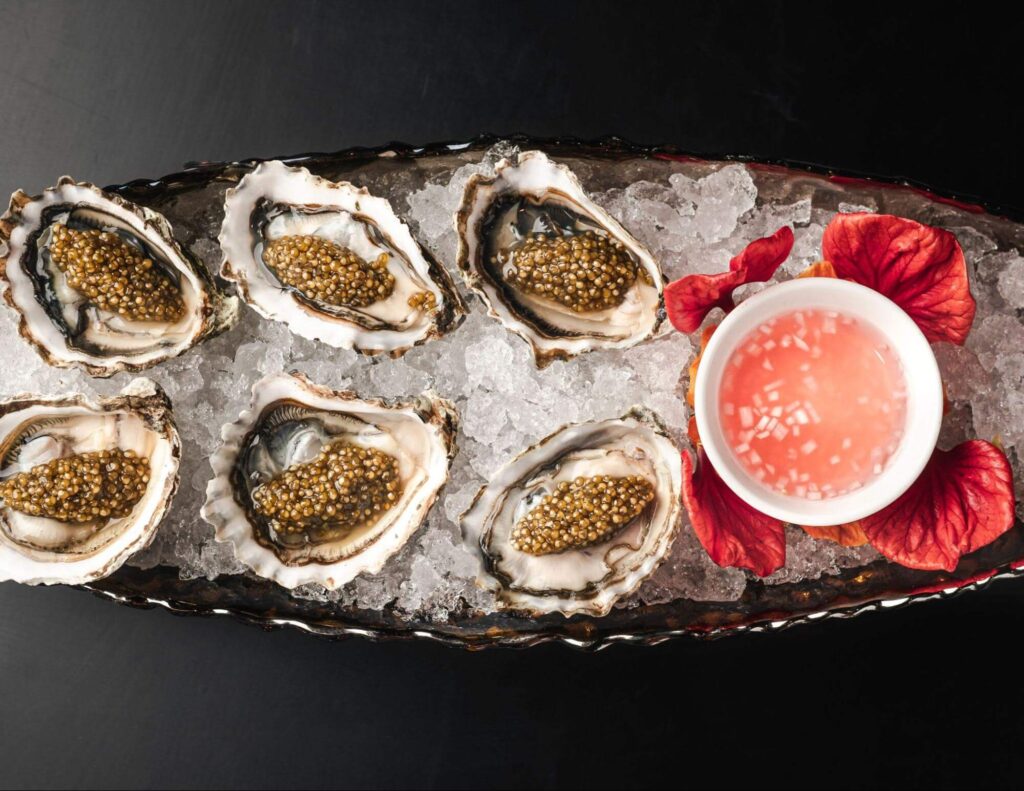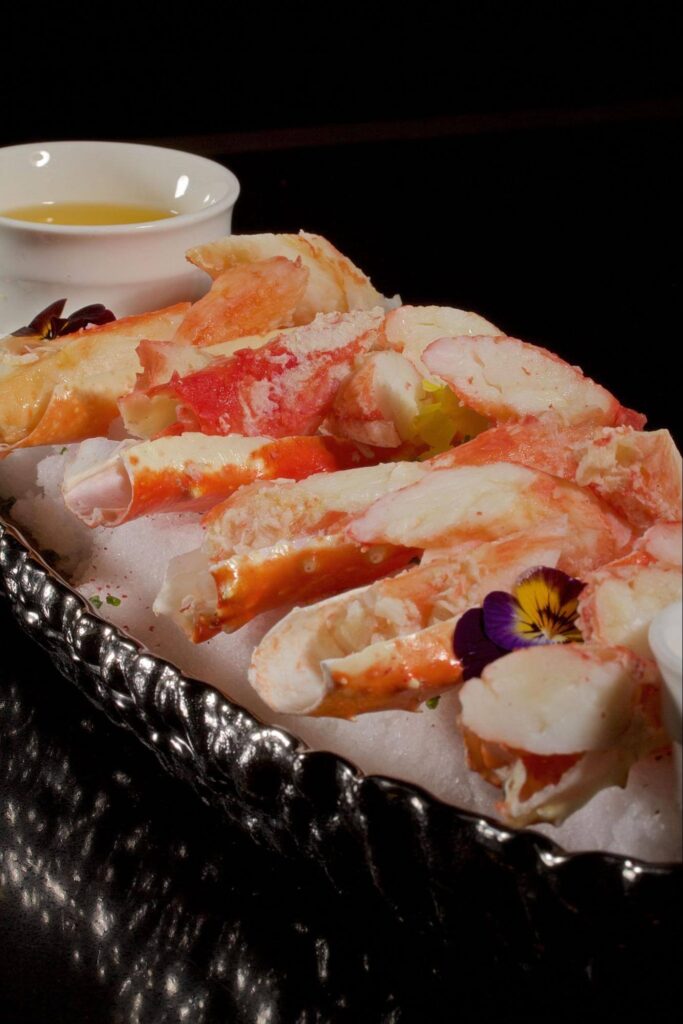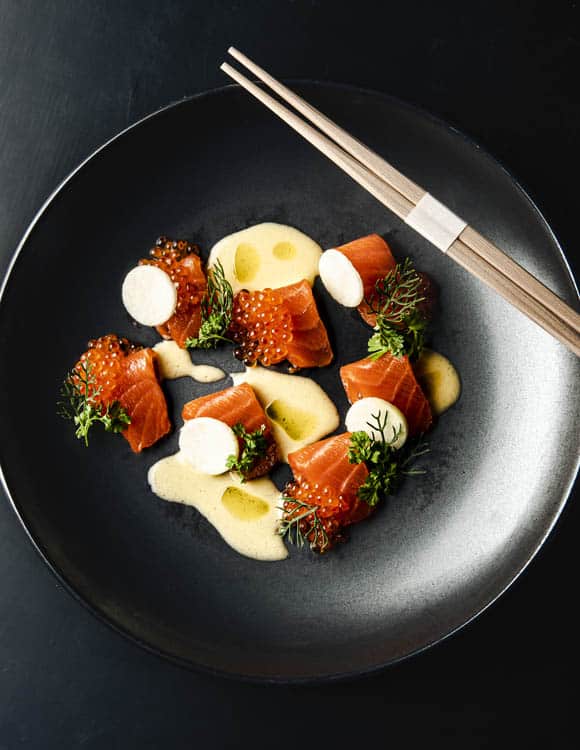Seafood 101:
Best Non-Fish Seafood To Eat
There is a lot of hype surrounding seafood — and with good reason. Seafood is popular because of its versatility, distinct flavors, and nutritional value. But what do you do when you want to jump onto the seafood train and don’t like fish? Fortunately, not all seafood is fish! There are plenty of options for individuals who want to add seafood to their diet but don’t want to eat fish. You shouldn’t let a little thing like a fish aversion keep you from reaping the delicious health benefits of seafood. Try it at home, or if you are in the Vegas area, try some Las Vegas seafood for yourself!

Are shellfish fish?
Shellfish are the most widely known type of non-fish seafood. Some shellfish examples include lobster, crab, shrimp, clams, scallops, and oysters. Despite the name, shellfish are not actually fish. Biologically, they differ substantially. Fish have fins, backbones, and gills. Shellfish is an umbrella term for all aquatic animals that have some kind of a shell, such as crustaceans or mollusks.
Try non-fish seafood options and discover seafood and more on the Vegas strip!
Non-fish seafood and nutrition facts
You’ve probably heard the boasting that seafood is good for you by friends, family, and doctors, whether on television or social media. The good news is these claims are factual and come with plenty of evidence to support them. Seafood is packed full of nutrients that promote overall health and well-being and can even help reduce the risk of common health issues. So, what seafood options are available that aren’t fish?
Oysters
Oysters are one of the healthiest seafood options available. This popular mollusk contains a substantial amount of zinc, copper, and B vitamins, as well as being a rare food source of vitamin D. They are a good source of protein and omega-3 fatty acids and are rich in antioxidants that may help lower the risk of heart disease, type 2 diabetes, and certain cancers. You can learn more about these amazing nutrition-packed mollusks by reading Seafood 101: 7 Reasons To Eat Oysters. Oysters are often eaten raw with a squirt of lemon but can also be poached, baked, steamed, or fried.
Abalone
Similar to oysters, abalone packs a punch on the nutrition scale. This mollusk is a great source of iodine, a trace element that many are lacking in their diets. Abalone is also an excellent source of protein, essential vitamins and minerals, and omega-3 fatty acids. Research has indicated that abalone extract possesses cancer-fighting properties, something everyone can benefit from. Abalone’s omega-3s can aid in reducing the risk of heart disease and boost the immune system. The iodine and copper contained in this mollusk are good for thyroid regulation, and the phosphorus and calcium are beneficial for bone health. Typically prepared raw as a sashimi or tartare, baked, or as a topping for soup, abalone is a tasty seafood choice.
Octopus
Octopus is one of those foods that people tend to either love or hate. Regardless of which side of the fence you fall on when it comes to octopus, it has substantial nutritional value. Like with most seafood, it is packed with omega-3s that support heart health. It also contains anti-cancer properties like selenium, B12, and folate. The magnesium in octopus is a great supporter of cognitive health, contributing to healthy brain activity, memory, and learning processes. It is a common ingredient in sushi, sashimi, karaage, stew, and salad.
Squid
Squid — better known as calamari in culinary terms — is a good source of vitamins B12 and B6, which are essential to the body for heart protection, neural health, and blood health. This cephalopod also contains selenium and vitamin E which work together to promote normal body growth and fertility. Squid is used for dishes like sushi, sashimi, and tempura items. It can be eaten as squid gravy, deep-fried, grilled, stuffed, and stir-fried.
Crab
Crab is a very popular non-fish seafood in the United States. Snow crab is flavorful and delicious, and the health benefits are a significant bonus. Packed with protein, high levels of omega-3s, vitamin B12, and selenium, this crustacean is an excellent addition to any diet to improve general health and prevent chronic conditions. Due to their rich nutritional profile, crabs can improve bone health, reduce the risk of cardiovascular disease, and enhance vision. Popular dishes include crab cakes, crab soup, crab legs, crab stir fry, and crab rangoon.
Shrimp
Another front-runner for popularity is shrimp. These tiny crustaceans are delicious, versatile, and relatively easy to prepare. Seafood in general is a great source of protein, and shrimp is no exception. Shrimp also provides nutrients like iodine, phosphorus, zinc, and magnesium, which are beneficial for heart health, immunity, bone health, and blood pressure regulation. Shrimp’s versatility makes it a great ingredient for dishes like gumbo, stir fry, creole, and kabobs, but they can also certainly be served independently. Shrimp can be prepared by boiling, broiling, baking, sauteing, and frying.
Clams
Clams — an often underappreciated seafood option with a delightful taste — come with whopping health benefits such as Vitamin C and iron, which can improve skin complexion by contributing to the synthesis of collagen. Clams are a terrific energy source thanks to the B12 in their nutritional profile. It also aids in diminishing inflammation. And like with most seafood, it is jam-packed with clean protein. You’ll typically find clams grilled or steamed and served in ceviche or soups.
Black mussels
Don’t miss out on the health benefits of black mussels! They are an exceptional source of omega-3s, B12, iron, manganese, selenium, and zinc. These small but meaty sea creatures can help reduce symptoms of depression and optimize mental health overall. Any food that aids in better mental health is worth its weight in gold. This shellfish can be cooked by steaming, broiling, and grilling. They can stand alone or be served in dishes like paella or seafood udon.
Seaweed
When you think of seafood, you may neglect to think of sea vegetables such as seaweed — a budget-friendly, delectable, and nutritious option. Seaweed’s nutritional profile is impressive with vitamins A, D, E, C, and B, as well as calcium, potassium, magnesium, and iron. Seaweed is a significant source of fiber and protein. It supports blood sugar control and healthy thyroid function and may promote heart health. Seaweed is common in making hand-rolled sushi, but it can also be seasoned and deep-fried or used to make laverbread.
Lobster
Probably the most popular variety of shellfish is lobster. Lobster, a luxurious fine dining ingredient, can be served as the main protein source in any meal and is a great option to improve your selenium and omega-3 intake. This upscale dish can help protect against thyroid disease, depression, and anemia. Lobster is usually served with butter and lemon juice but is also used in soups, bisque, and stews. It is typically cooked by broiling, boiling, baking, or poaching.
More than fish

Seafood is a vast category that isn’t limited to just fish. From crustaceans to cephalopods, there are many types of non-fish seafood to choose from. Don’t miss out on the explosion of flavor and health benefits seafood offers, even if you don’t like fish. You can find endless seafood restaurants in Las Vegas to suit your individual needs and that cater to even the pickiest of eaters.
Come join us for dinner and enjoy a luxury meal you won’t soon forget!
Don’t Miss Out on the Best Seafood in Las Vegas!
Cod is a nutritious fish that is high in protein and low in fat. It is a firm fish with a flaky texture and has a mild flavor that is delicate and slightly sweet. Cod is an excellent source of omega-3 fatty acids, which are beneficial for heart health. When buying cod, look for fish with bright eyes, pink gills, and firm flesh. Avoid cod with cloudy eyes, dull coloring, or a strong fishy odor. Fresh cod can be stored in the refrigerator for up to two days. Cooked cod can be frozen for up to six months.
Seafood is one of the most popular types of cuisine, but it can be difficult to know where to start when it comes to choosing a dish. That’s why Aqua Seafood & Caviar Restaurant, known for its exceptional seafood, is the perfect spot for seafood lovers of all experience levels. Come join us for dinner and see why we’re renowned as the best seafood in Las Vegas!

Resources:
Evans, H. (2019). 8 Amazing Health Benefits of Abalone.
Joseph, M. (2023). 28 Healthy Types of Seafood: Nutrition, Benefits, and More.
Zelman, K. (2022). Are There Health Benefits to Eating Octopus?
